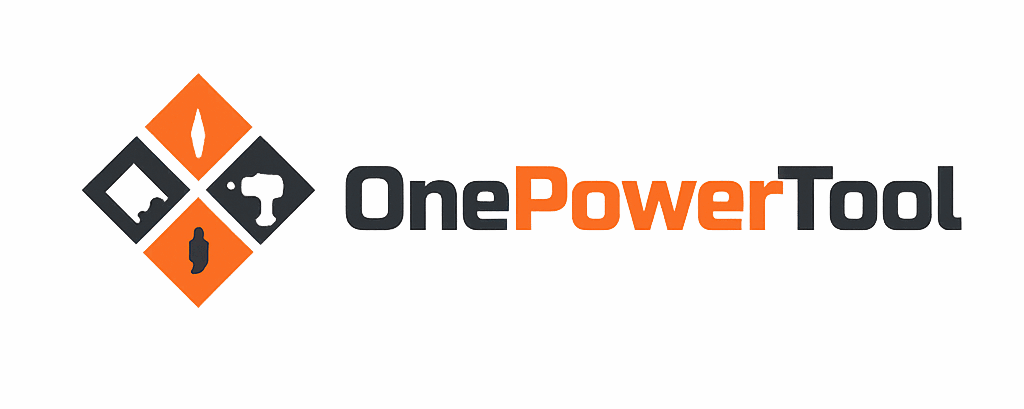What are the benefits and drawbacks of using web analytics tools in the power tool industry?

Introduction to Web Analytics Tools in the Power Tool Industry
Web analytics tools are essential in understanding user behavior and optimizing marketing strategies in the power tool industry. These tools, such as Google Analytics, enable businesses to track visitors to their websites, analyze their interactions, and gather data on customer preferences, which can inform product development and marketing strategies. The relevance of these tools in the power tool industry is significant; they help companies assess the effectiveness of online campaigns, improve user experience, and ultimately drive sales. For instance, insights from web analytics can identify which products are most popular, allowing brands to adjust inventory accordingly and enhance customer satisfaction. Furthermore, by understanding how users navigate their websites, companies can implement changes that lead to higher conversion rates and improved overall performance. In an industry where competitive differentiation is crucial, leveraging web analytics allows power tool companies to make data-driven decisions, ensuring they meet the specific needs of their customers while maximizing their marketing ROI. For a deeper exploration of effective online marketing strategies, visit our article on power tool usage projects.
Benefits of Using Web Analytics Tools
Web analytics tools offer numerous advantages that empower businesses to optimize their online presence and marketing strategies. One of the primary benefits is data-driven decision making. By tracking user behavior, conversion rates, and engagement metrics, businesses can make informed decisions based on actual data instead of assumptions. This empirical approach enhances the effectiveness of marketing efforts, ensuring resources are allocated to strategies that yield the highest returns. Additionally, web analytics tools significantly improve customer segmentation. By analyzing demographic, geographic, and behavioral data, businesses can categorize their audience into distinct segments. This allows for more personalized marketing strategies, enhancing customer experience and satisfaction. Targeted campaigns can be designed for specific segments, leading to higher conversion rates and customer loyalty. The integration of these analytics tools empowers companies to continuously refine their approaches, fostering a culture of ongoing improvement and agility in their strategies. For more insights on utilizing data for better decision making, explore our article on the best practices for optimal power tool usage.
Data-Driven Decision Making
Data analytics significantly enhances decision-making processes by transforming raw data into actionable insights. According to a study by McKinsey, organizations that embrace data-driven decision-making are 23 times more likely to acquire customers, 6 times more likely to retain customers, and 19 times more likely to be profitable [Source: McKinsey]. By utilizing predictive analytics, businesses can forecast trends and behaviors, enabling them to make informed decisions that align with market demands. For instance, retail companies leverage customer purchase histories to optimize inventory management, ensuring that they meet customer needs without overstocking [Source: Forbes]. Furthermore, real-time analytics allows organizations to monitor key performance indicators, facilitating quick adjustments to strategies as needed. Companies like Netflix utilize data analytics to understand viewer preferences, which guides content creation and improves user engagement [Source: Harvard Business Review].
Customer Segmentation for Targeted Marketing
Segmenting customers is a strategic approach that categorizes a business’s clientele based on various criteria, such as demographics, purchasing behavior, and preferences. This process allows marketers to tailor their strategies more effectively, enhancing engagement and conversion rates. One major benefit of customer segmentation is that it enables personalized marketing. By understanding different segments, businesses can craft targeted messages that resonate with specific audiences, leading to increased customer satisfaction and loyalty. For instance, a retailer may offer promotions that appeal to budget-conscious shoppers while providing exclusive deals to loyal customers [Source: Forbes].
Additionally, segmenting customers can optimize marketing budgets. By directing spending toward strategies that reach high-value segments, businesses can improve their return on investment (ROI) significantly. Research indicates that targeted marketing campaigns can increase ROI by up to 20% compared to untargeted efforts [Source: Medium]. Ultimately, effective customer segmentation fosters innovation by revealing unmet needs and opportunities within specific groups, allowing businesses to introduce new products or services that cater directly to those demands [Source: Academia.edu]. For those interested in enhancing their marketing strategies through effective segmentation, resources are available on our blog, including insights on power tool usage and best practices in various DIY projects [Source: One Power Tool].
Improved Targeting Strategies
Using web analytics is instrumental in refining targeting strategies that enhance marketing outcomes. By collecting and analyzing data on user behavior, preferences, and demographics, businesses can identify their target audience more precisely. This information enables marketers to tailor their campaigns specifically to the interests and needs of potential customers, resulting in higher engagement rates and conversions. For instance, Google Analytics provides insights into user interactions with a website, allowing marketers to understand which content performs best and where users drop off in the purchasing process. By tracking key performance indicators (KPIs), marketers can adjust their strategies in real-time, focusing on high-performing channels and reallocating resources to optimize ROI.
Moreover, segmentation tools allow businesses to categorize users based on various criteria such as geography, browsing habits, and purchase history. This segmentation facilitates personalized marketing, leading to messages that resonate more strongly with individual consumers. Research indicates that personalized campaigns can deliver up to 6 times higher transaction rates compared to non-personalized ones [Source: Falcon.io].
Ultimately, the iterative nature of analytics means that marketing strategies can continually evolve based on the latest data, ensuring that businesses remain competitive and responsive to market changes. For more insights on effective marketing techniques, explore our article on Marketing Best Practices.
Competitive Analysis for Market Positioning
To conduct effective competitive analysis and improve market positioning in the power tools industry using analytics, companies can follow several key strategies:
- Data Collection and Market Research: Start by gathering data on competitors, including pricing, product offerings, and marketing strategies. Tools like SEMrush or SimilarWeb can provide insights into competitor traffic and keyword strategies, enabling a comprehensive understanding of market trends.
- SWOT Analysis: Conduct a Strengths, Weaknesses, Opportunities, and Threats (SWOT) analysis to evaluate competitors. This helps identify areas where your products can differentiate from others, allowing for targeted marketing and product development efforts [Source: One Power Tool].
- Customer Feedback Analysis: Utilize tools like Google Analytics to track customer behavior on your website and gather feedback through reviews and surveys. Analyzing this data can reveal consumer preferences and pain points, helping to optimize product offerings and improve customer satisfaction [Source: One Power Tool].
- Performance Benchmarking: Compare your performance metrics against industry standards or direct competitors. Metrics such as sales volume, customer retention rates, and online engagement can provide insights into your market positioning and performance trends.
- Market Segmentation: Use analytics to segment your audience based on demographics, purchasing behavior, and preferences. This segmentation enables personalized marketing strategies, which can enhance brand loyalty and attract new customers [Source: One Power Tool].
- Predictive Analytics: Leverage predictive analytics to forecast market trends based on historical data. This approach can help businesses anticipate customer needs and launch products that meet emerging demands, thus enhancing their market position.
- Continuous Monitoring and Adjustment: The competitive landscape is always evolving. Regularly monitor competitors and market trends using analytics to adjust your strategies accordingly. Tools like HubSpot can help track market changes and customer engagement dynamics over time.
By implementing these analytical strategies, power tool companies can enhance their competitive analysis efforts and improve their market positioning, ensuring sustained growth and relevance in the industry.
Drawbacks of Web Analytics Tools
Utilizing web analytics tools presents several disadvantages and challenges that businesses should consider:
- Data Overload: Organizations may face difficulties in sifting through the vast amount of data collected. This can lead to analysis paralysis, where decision-makers are overwhelmed by information, making it hard to derive actionable insights.
- Privacy Concerns: With increasing regulations, such as GDPR and CCPA, businesses must navigate privacy concerns carefully. Failing to comply with these regulations can lead to significant penalties and damage to reputation.
- Cost: While many web analytics tools offer free versions, advanced features often come at a significant cost. Small businesses may find it challenging to justify these expenses, especially when budgets are tight.
- Skill Gap: An effective use of analytics tools requires a certain level of expertise. Companies without skilled analysts may struggle to interpret data correctly, leading to misguided strategies.
- Data Accuracy: The reliability of analytics data can be questionable if tracking is set up incorrectly. Inaccurate data can lead businesses to wrong conclusions and ineffective actions.
- Dependence on Technology: Heavy reliance on automated analytics can cause a lack of human insight and intuition in decision-making, which is critical for understanding nuanced market dynamics.
- Integration Issues: Challenges can arise when attempting to integrate analytics tools with existing software systems. Compatibility problems can hinder data flow and create silos, undermining the benefits of analytics.
Navigating these challenges requires careful planning, investment in training, and a balanced approach to technology and human insight. For further insights on using technology effectively, consider exploring our article on best practices for tool usage.
Data Overload and Analysis Challenges
Managing excessive data presents significant challenges for organizations, particularly as the volume, velocity, and variety of information increase. This complexity can overwhelm existing data analysis systems, leading to missed insights and ineffective decision-making. The Gordon Institute of Business Science highlights that without effective management strategies, organizations risk encountering redundant data, which complicates analysis efforts and can lead to misleading outputs. To combat these issues, it is critical to implement best practices such as data governance, which includes establishing clear policies for data management, usage, and security.
Furthermore, tools that enable real-time data processing can help organizations handle large datasets more efficiently by providing immediate insights. Machine learning algorithms also play a crucial role by automating analysis processes and identifying patterns that may not be evident through traditional methods. As noted in the article from DataPine, effective data visualization techniques are essential in presenting complex data insights clearly.
Incorporating these practices can streamline the analysis process, enhance data quality, and ultimately foster more informed decision-making, reducing the complexities associated with excessive data management. For more on this topic, see our article on Power Tool Projects which emphasizes the importance of practical solutions in various settings.
Privacy Concerns and Data Protection
In recent years, data privacy and protection in the context of web analytics have become critical concerns for businesses and consumers alike. The increasing reliance on data-driven strategies has brought to light issues surrounding user consent, data breaches, and compliance with regulations such as the General Data Protection Regulation (GDPR) and the California Consumer Privacy Act (CCPA).
One major issue is the lack of transparency in how analytics tools collect and use data. Many web analytics platforms utilize cookies and tracking scripts to monitor user behavior, often without explicit consent, leading to potential violations of privacy rights. For instance, a 2022 report indicated that about 60% of websites do not provide adequate information about data collection practices, leaving users unaware of how their data is used [Source: Privacy International].
Moreover, data breaches continue to pose a significant risk, with enterprises frequently targeted by cyberattacks. The potential for sensitive user data to be exposed underscores the necessity for robust security measures. In 2023 alone, over 50 million records were compromised due to security lapses in analytics systems [Source: Identity Theft Resource Center].
Additionally, compliance with emerging regulations poses challenges for companies using analytics. Many businesses struggle to align their data practices with GDPR, which enforces strict guidelines around user consent and data transfer. The recent enforcement actions against non-compliant firms highlight the need for businesses to reassess their web analytics strategies and ensure transparent data practices [Source: IAPP].
In conclusion, navigating the complex landscape of data privacy and protection in web analytics requires ongoing vigilance and adaptation to regulatory frameworks, driven by a commitment to user trust and ethical data practices. For more information on data compliance and privacy, read our guide on Power Tool Usage Projects.
Technical Implementation Challenges
Implementing web analytics tools presents several technical challenges that can hinder effective data collection and analysis. One major hurdle is ensuring data accuracy, which can be compromised by improper configuration or tracking issues. For example, inconsistent tagging across web pages may lead to gaps in data, making it difficult to derive meaningful insights. Decision-makers must prioritize implementing consistent tagging strategies and conducting thorough pre-launch testing to mitigate this risk.
Another significant obstacle is the integration of analytics tools with existing technologies. Organizations often use multiple platforms for customer relationship management (CRM), content management systems (CMS), and e-commerce software, making it essential that analytics tools seamlessly integrate with these systems. Poor integration can result in fragmented data that fails to provide a complete picture of user behavior. Using APIs and ensuring compatibility with established platforms can help resolve this issue.
Data privacy regulations pose a further technical challenge. Compliance with laws such as GDPR requires businesses to be transparent about data collection practices and to obtain consent from users. Failing to comply can lead to legal repercussions and loss of customer trust. Companies need to implement robust privacy measures while retaining their ability to gather essential analytic insights.
Lastly, the sheer volume of data generated can be overwhelming. Businesses often struggle to analyze large datasets effectively, leading to analysis paralysis. Utilizing automated analytics tools and artificial intelligence can assist in managing this data, enabling more insightful and timely decision-making. To explore how these best practices can be applied effectively, consider reviewing our guide on best practices in analytics.
Limitations of Online Data
The reliance on online data sources for comprehensive insights often presents several limitations, making it essential to critically evaluate their information. Firstly, many online sources lack rigorous editorial standards, which can result in misinformation or biased perspectives. A study by Columbia Journalism Review highlights that the prevalence of unverified content increases alongside user-generated platforms where authority is unclear.
Secondly, search engine algorithms prioritize popular content over accuracy, which can further skew the available information towards sensationalism rather than depth. For instance, algorithms designed to maximize engagement may favor sites that do not offer thorough analyses or credible evidence (Harvard Business Review).
Additionally, many sources may only provide limited perspectives due to their focus on specific topics or preferences dictated by the audience they serve. This limitation can create echo chambers where information is repetitively affirmed rather than critically challenged, leading to a lack of nuanced understanding (Pew Research Center).
Lastly, the fast-paced nature of online information can lead to outdated or obsolete data being circulated, particularly in industries subject to rapid change. For detailed exploration of reliable tools that can mitigate these issues, refer to our articles on power tool usage projects and features of electric hand drills.
Conclusion: Maximizing the Benefits of Web Analytics Tools
Leveraging web analytics tools is essential for maximizing your website’s efficiency and effectiveness. Here are key points and strategies to enhance your use of these tools:
- Set Clear Objectives: Begin by defining what you want to achieve through analytics. This could be increased traffic, higher conversion rates, or improved user engagement. Having clear goals allows for more focused data analysis and strategy implementation.
- Utilize Google Analytics Features: Familiarize yourself with the various features of Google Analytics, such as goal tracking, funnel visualization, and custom dashboards. Setting up events and conversions correctly will provide insights into user behavior and website performance.
- Monitor Key Performance Indicators (KPIs): Identify and regularly track relevant KPIs such as bounce rate, average session duration, and conversion rates. These metrics serve as indicators of how well your website meets its objectives.
- Segment Your Audience: Use segmentation to analyze different user groups based on demographics, behavior, or traffic sources. This helps in understanding how various segments interact with your site, enabling targeted marketing strategies.
- Implement A/B Testing: Conduct A/B tests on different elements of your website, such as landing pages, CTAs, or content layouts. This practice allows you to see what works best for your audience, optimizing conversion rates.
- Regular Reporting: Create regular reports to track progress over time. Use visualizations and summarize the data to easily share insights with your team. Adjust strategies based on the findings to ensure continuous improvement.
- Stay Updated with Trends: Keep abreast of the latest trends and updates in web analytics. Understanding new features and methodologies, such as predictive analytics, can keep your strategies innovative and effective.
- Integrate with Other Tools: Take advantage of integrations with other marketing tools like CRM systems or email marketing platforms for a more holistic view of customer interactions and to refine your marketing efforts.
For more insights on digital tools and analytics, consider visiting our other resources like power tool usage projects or learning about effective safety tips for using power tools.
Expert Insights: Danielle Rolfson on DIY and Power Tools
Danielle Rolfson emphasizes the significance of understanding and mastering DIY practices in the power tool industry. She advocates for a hands-on approach, encouraging enthusiasts to familiarize themselves with tools before beginning projects. This not only enhances confidence but also ensures safety.
Rolfson suggests investing in quality tools that suit specific tasks. For instance, using an electric hand drill is vital for both professional and DIY projects, as it offers precision and efficiency. She highlights the importance of choosing the right battery-operated tools, which provide mobility without compromising power. In her experience, tools from reputable brands often deliver better performance and longevity, critical for successful DIY projects.
Furthermore, Rolfson addresses common mistakes like stripping screw heads. She recommends best practices, such as selecting the right bit size and type, to avoid these issues. For detailed guidance on avoiding such errors, please refer to this resource.
As DIY trends evolve, Rolfson notes a growing interest in sustainability. She encourages using non-sparking tools for safety in sensitive environments, a topic discussed in-depth in another of her articles. Overall, Rolfson’s insights point to a future where informed DIY practices can lead to more innovative and safer home improvement endeavors.
Sources
- Academia.edu – Customer Segmentation in Marketing: Analysis and Importance of Segmentation Considerations
- Medium – The Benefits of Customer Segmentation in Marketing
- DataPine – Data Visualization Best Practices
- Identity Theft Resource Center – 2023 Data Breach Report
- IAPP – 2023 Privacy Enforcement Year in Review
- Privacy International – Web Tracking 2022
- Forbes – How Data Analytics is Helping Retailers to Improve the Customer Experience
- McKinsey – How Analytics Can Improve Business Decision-Making
- Pew Research Center – How Social Media Affects News Consumption
- Harvard Business Review – What Research Shows About How People Interact with Online Content
- Harvard Business Review – What Data Does Netflix Actually Use?
- Forbes – The Importance of Customer Segmentation in Marketing
- One Power Tool – What are the Best Practices to Avoid Stripping Screw Heads with Power Tools?
- One Power Tool – What are Some Safety Tips for Using an Electric Hammer Drill?
- One Power Tool – Power Tool Usage Projects
- One Power Tool – Power Tool Usage Projects Basics
- Columbia Journalism Review – Fake News: The Facts
- Harvard Business Review – What Data Does Netflix Actually Use?
- One Power Tool – Blog on Marketing Best Practices
- One Power Tool – Features of a Good Electric Hand Drill
- One Power Tool – Best Practices for Tool Usage






